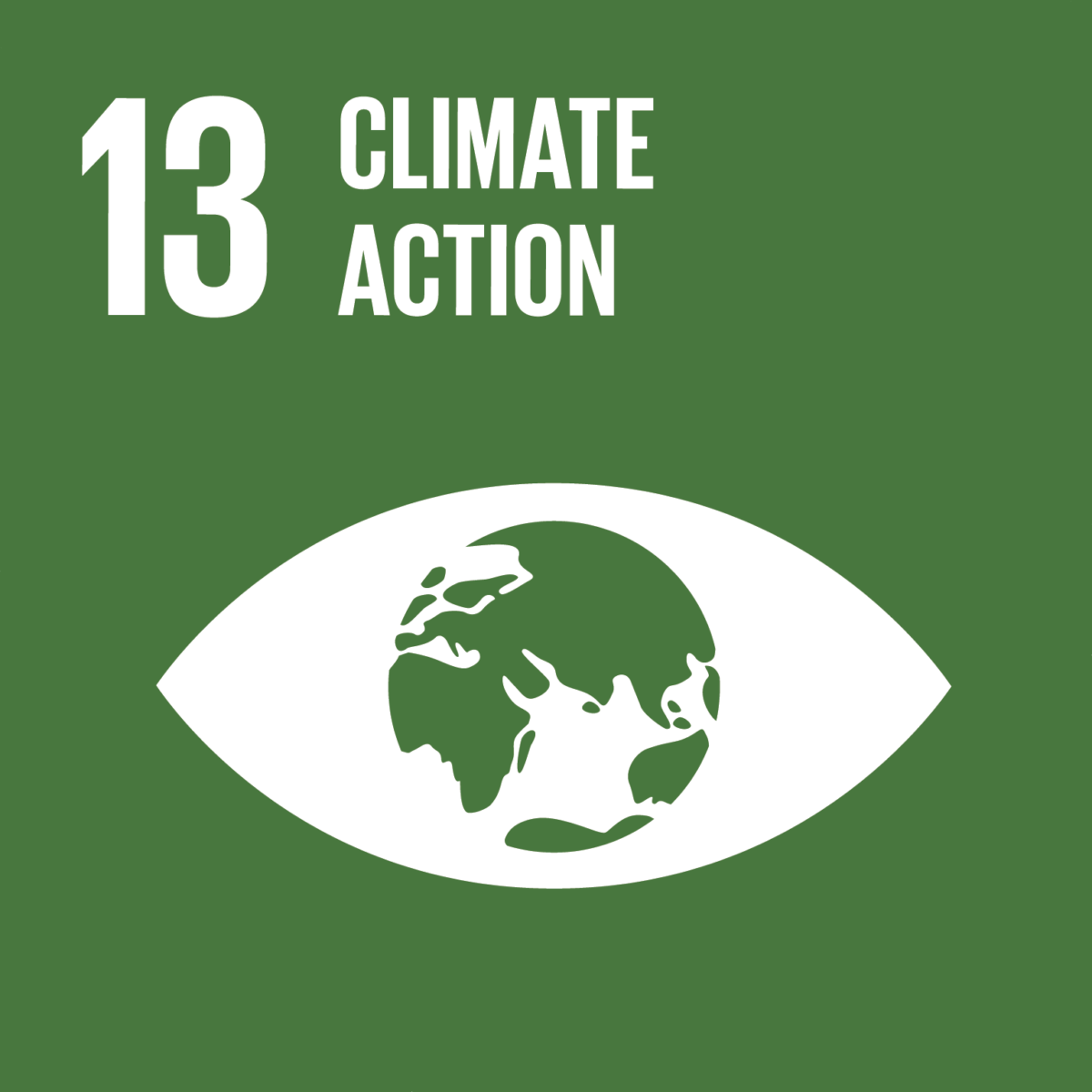Goal 13: Climate Action
The global temperature has already risen 1.1ºC above the pre-industrial level, with glaciers melting and the sea level rising. Impacts of climate change also includes flooding and drought, displacing millions of people, sinking them into poverty and hunger, denying them access to basic services, such as health and education, expanding inequalities, stifling economic growth and even causing conflict. By 2030, an estimated 700 million people will be at risk of displacement by drought alone.
Taking urgent action to combat climate change and its devastating impacts is therefore an imperative to save lives and livelihood, and key to making the 2030 Agenda for Sustainable Development and its 17 Goals – the blueprint for a better future – a reality.
In 2020, concentrations of global greenhouse gases reached new highs, and real-time data point to continued increases. As these concentrations rise, so does the Earth’s temperature. In 2021, the global mean temperature was about 1.1°C above the pre-industrial level (from 1850 to 1900). The years from 2015 to 2021 were the seven warmest on record.
To limit warming to 1.5° Celsius above pre-industrial levels, as set out in the Paris Agreement, global greenhouse gas emissions will need to peak before 2025. Then they must decline by 43 per cent by 2030 and to net zero by 2050. Countries are articulating climate action plans to cut emissions and adapt to climate impacts through nationally determined contributions. However, current national commitments are not sufficient to meet the 1.5°C target.
Manba: https://www.un.org/sustainabledevelopment/climate-change/
2021
2022
- Student of TSUOS Siddiqov Shokhjahon is participating at the regional youth conference on “Youth for the Future: Climate Change in Central Asia”
- Environmental protection in TSUOS
- Promotion of ecological culture
- Ensuring safety during natural disasters and extreme situations
2023
- Implementation of the subject “Green Economy”
- Policy of using renewable energy
- Environmental protection in the view of TSUOS students
